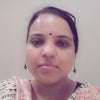Reclaiming Life's Colors Breaking one of the biggest taboos in Indian society – Hindu widows celebrating the festival of colors, Holi
Opinions expressed by Entrepreneur contributors are their own.
You're reading Entrepreneur India, an international franchise of Entrepreneur Media.

Even if all the women of the world lent their voice to the cause of equality, and against gender discrimination, it still won't be enough. That's because we need the men, too, to join in with their baritones. Initiated by UN Women, the HeForShe campaign kicked off in 2014, whose goal is to engage men and boys as agents of change for the achievements of gender equality and women's rights by encouraging them to take action against inequalities faced by women and girls.
Dr Bindeshwar Pathak of Sulabh International, however, doesn't need such coaxing and global initiatives. In 2013, the man who pioneered social reform in the field of sanitation and hygiene broke one of the biggest taboos in Indian society – Hindu widows celebrating the festival of colors, Holi. In 2013, hundreds of widows took active part in a festival that had been, until now, just a pleasant memory from the past -- one of the many happy memories when they had a standing in the family and society, albeit only as someone's wife. The husband dead, their identities, too, are taken away from them. Dressed in white, banished from their homes by their families, forced to live in the lanes of Vrindavan and survive by singing bhajans outside temples, these widows broke social stigma with colors, thanks to Dr Pathak.
He was there when the first Holi celebrations took place at the Meera Sahbhagini Ashram. "The widows are usually bereft of all that gives happiness to a person in day-to-day life. I saw widows with gaps in the rows of their teeth from which youth had escaped, their faces wrinkled and crowfeet stamped on them," he says. Holi made it all worthwhile, though, as the white of the saris took on all the rainbow hues of colors. "The moment for me has become unforgettable. It will be a source of perennial joy in my life to think that not only has Sulabh been responsible for lighting up the faces of the widows, but also because I have been a part of the process," he says.
The process Dr Pathak is talking about is the bigger role Sulabh International is playing in the lives of these widows. In August 2012, the Supreme Court had directed the UP government to ensure proper cremation and last rites for the widows in Vrindavan. It also suggested Sulabh may be contacted for help. Since then, the NGO has been taking care of nearly 800 widows by providing them healthcare and a monthly allowance of Rs 2,000. The women are also learning English and make some money for themselves by preparing incense sticks and garlands. The widows have been celebrating other festivals with added enthusiasm now, say Sulabh executives.
Nothing comes close to the joy of reclaiming colors, however, which they did with Dr Pathak for the first time in 2013, with 400 kg of flowers, and all the hues of Holi. Like we said, the women's empowerment movement needs men, too.












